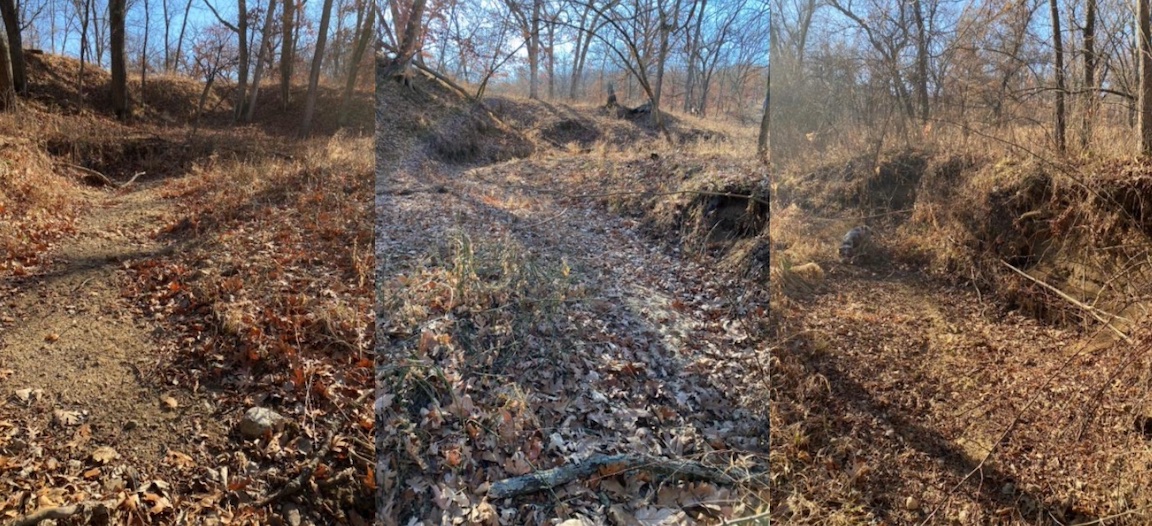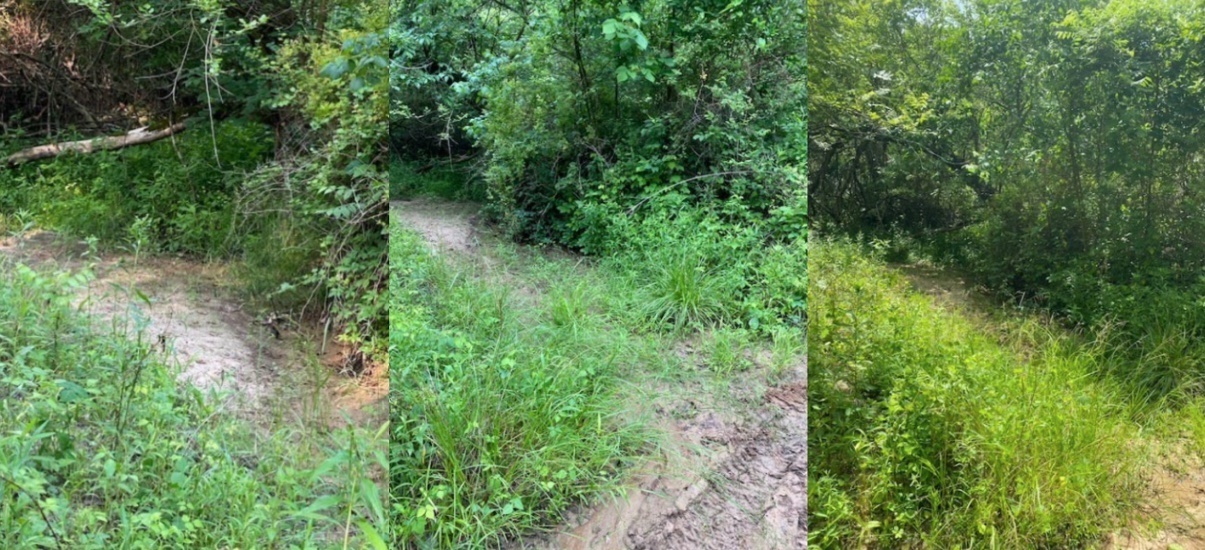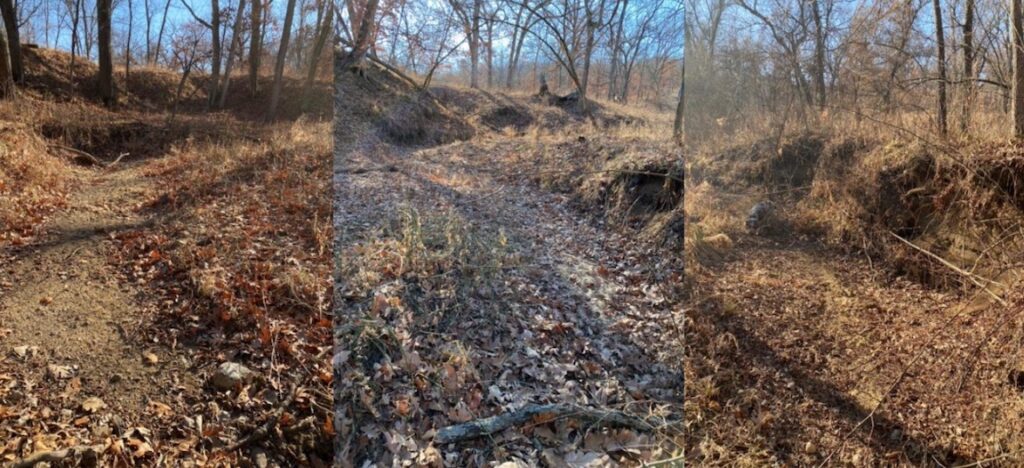Dan Ward, an Iowa landowner, stands in a ditch that's drier than salty, kicking the dry dirt as he searches for answers. “I'm looking for common sense, but I can't find anything,” he says. “Who would pretend that the ground is wet when there isn't a drop of water? Who would dare to ignore a Supreme Court ruling and force the people to do something? Only federal bureaucrats.”
Mr. Ward cannot build a pond on his 420-acre farm property. That's because government officials consider “waters of the United States” to be a dry depression that stretches half a mile across land more than 100 miles from the nearest navigable river.
“We've reached a point where government officials think they can ignore Supreme Court law,” Ward argues. “What the government is doing on my land is 100% about maintaining power.”
Do you obey or refuse?
Two steps forward, three steps back for American landowners and farmers?
In May 2023, Sackett vs. EPA, the Supreme Court (SCOTUS) announced a 9-0 decision heralding a significant reduction in government power by restoring the scope of the Clean Water Act (CWA) to its original limits. In a major rebuke to the EPA and the Army Corps of Engineers, SCOTUS limited federal control of waters and noted that the designation of waters should be clear to the public, meaning common sense should prevail.
Justice Samuel Alito specifically stated that “'water,' as used by the CWA, is a relatively permanent, stationary, or continuous body of water that forms a geographic feature that is described in common parlance as a stream, ocean, river, or lake.” It only covers water bodies that flow into the area.
Now that the SCOTUS decision is final, have the two government agencies that lead water regulation, the EPA and the Army Corps of Engineers, complied with the ruling? “No. They nailed it right away,” Ward says. “They ignored it and continued working on my property.”
“Off the Rail”
In Decatur County, about a quarter-mile above the Missouri border, Mr. Ward owns 420 acres in central Iowa. His rolling land features his 200 acres of timber, 180 acres of grasslands, and his 40 acres of row crops surrounded by ridges and shallow valleys in the heart of world-class whitetail country. Masu. “I am a serious steward of this land and spend every moment here improving the health and habitat of my land.”

The property includes nine small ponds, each about a quarter acre in size, that were once used as watering holes for livestock. In 2023, Ward began construction of his nine-acre pond. “For me and his 13 grandchildren, we wanted a better aquatic environment for fishing and a place to create a different ecosystem here. Improve everything from habitat to recreation. We want this place to remain natural.”
Ward's pond property crosses 2,800 feet of a dry ditch that runs 3,500 feet across his land, ranging from 3 feet to 5 feet wide. Located a quarter-mile from Ward's property line, this dry ditch leads to Caleb Creek, which flows into the Weldon River, which flows into the Thompson River, which empties into the Grand River, and then into the Missouri River.
“Basically, I call it a dry valley or dry depression,” Ward explains. “Unless it rains that day, there's no water there. If you come after it rains, there's just a few isolated puddles. It connects to a stream off my property. The closest navigation. The Grand River, which is a possible river, is over 100 miles away.”
As a general contractor for a heavy industrial company working on foundations for aluminum and steel rolling mills, Mr. Ward was keen to get the pond built right from the start. He hired a civil engineer to design the pond, hired a geotechnical firm to take soil boring samples, and paid to create wetland boundaries that proved negative.
“I did everything openly and followed the rules. I have worked with the Corps and have several contracts with the Corps, but I would never do anything harmful to the environment. Because of the required pond height, I applied for a permit for the dam with the Iowa Department of Natural Resources. They sent the details of my application to the Corps, but that's where things got crazy. ”
Suddenly, in the eyes of federal officials, Ward's dry ditch turned into a fast-flowing “stream,” and his proposed pond harmed wildlife habitat, disturbed historic artifacts, and disrupted U.S. water supply. may be damaged.
$ 1,000,000
Corps personnel visited Ward's property in April 2023 and spent four hours there. “It was a ridiculous thing to do,” Ward explains. “It rained recently, so there was a puddle in what they claimed was a stream. The Corps was here for literally four hours once, and that was all they needed to claim jurisdiction. Including December. I sent pictures of the ditch being completely dry all year, but they said it was because of the drought.”

but, Sackett vs. EPA threw a monkey wrench into the Legion's jurisdiction on Ward's property. “Suddenly, they told me they might lose jurisdiction based on a big Supreme Court case. Sure enough, after the Sacketts won that case, the Corps told me that they could not yet speak officially. I said I can't, I don't have jurisdiction anymore, but I have to wait for the final judgment.”
(The Army Corps of Engineers declined Farm Journal questions related to the Dan Ward and Sackett decisions, citing pending appeals.)
Ward waited month after month with a dry ditch. “I kept calling the Corps for answers. Finally, they said they had been given additional tools by the EPA and now have jurisdiction again. It's simple. The Corps said there's no way around it. I was buying time to find out. Saket Ruling. They will never ignore the Supreme Court unless they feel they have the authority to do so. ”
But after the government assumed jurisdiction over Ward's property, the Corps did not deny him a pond permit, a move he claims is misleading. In exchange, Ward was asked to tick a series of regulatory boxes and pay a hefty sum.
“They told me there would never be a denial of permission, but on the other hand they tried to wear me down. All I had to do was step through their process. They said it could easily cost six figures or more, and even that didn't guarantee a permit.”
“In my case, the Corps said they had to do a 'needs assessment' as to why the pond was needed. They then said they had to do an 'archaeological survey' to make sure the artifacts were intact.” It needed to be done. Next, we had to do a survey of “wildlife habitat.” They then had to come up with a plan to either replace the stream elsewhere by building or restoring another stream of the same size, or to buy stream credits, similar to carbon credits. The credits were scheduled to cost more than $1 million. ”
The district had two options. Either cancel the pond project or seek legal assistance.
Enter Pacific Law Foundation (PLF). This is the same law firm that ran for and won the case before the Supreme Court. Saket In a PLF statement, attorney Charles Yates said frankly: “The 'streams' that the Army Corps claims bear control authority resemble more like hiking trails than bodies of water. One day, the Corps observed water dripping after a major rainstorm. They seem to think that this invisible ditch will magically turn into a navigable body of water that can be regulated under the Clean Water Act. SaketBut the Corps isn't getting the message. ”
“Shame on us all.”
In February 2024, Ward, with assistance from PLF, filed a regulatory appeal against the Corps.
“Saket PLF attorney Sean Radomski clarified that only “relatively permanent, static, or continuously flowing bodies of water” can be regulated. “But the Corps is attempting to seize control of a dry, unnamed tributary some 160 miles from navigable waters. This is classic government overreach.”
Almost a year after SCOTUS Saket How many cases like Ward's are in the crosshairs of the EPA and the Corps regarding this decision?
“Mr. Ward's situation is not isolated,” Radomski says. “We are seeing more lawsuits filed that fall short of the Clean Water Act. Saket test. I am currently involved in a similar case on private property in the Eastern District of North Carolina. It is very important to stay involved. If this goes on, Saket It is a Pyrrhic victory where one battle is won and the war is lost.If we don't wake up, the government will ignore us. Saket”
Ward's appeal is currently under review by the Corps. His case could be heard by a neutral judge in federal court in the Southern District of Iowa.
“Regardless of what the Constitution says, power-hungry officials are never satisfied, so there is always a point where you lose everything if you don't fight back,” Ward concluded. “Over a long period of time, they gradually seize power and ignore additional laws. Shame on all of us who forgave them.”
For more articles by Chris Bennett (cbennett@farmjournal.com or 662-592-1106), see:
Power and privacy: Landowner sues game warden to challenge property trespass
Corn and Cocaine: Roger Reeves and the Most Incredible Farm Story Ever Told
American Gothic: A farm couple gets caught in a $9 million crop insurance scam.
A rare pistol lost for decades is discovered in a farmhouse attic
Bollworm Farm: A crazy story of a barbaric conspiracy to corner the snake venom market
Tractorcade: How an epic convoy and legendary peasant army shook Washington, D.C.
The strange mystery of mummified coon dogs is solved after 40 years
China stole the farm while America slept.


